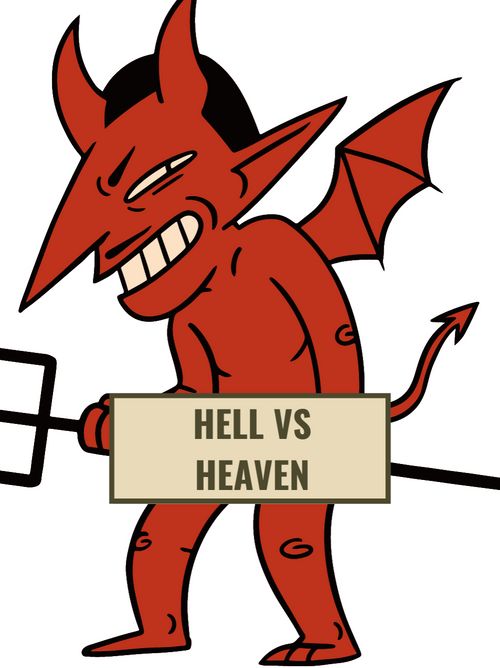CS Lewis describes the nature of HELL
Nov 28, 2021 · 2 mins read
0
Share
C.S Lewis' The Great Divorce is a fable full of profound ideas. It describes a bus ride from hell to heaven, and the stories of the ghosts who are onboard. This short book has insightful things to say about how art and inquiry get corrupted, the nature of hell, and more👇
Save
Share
Marriage - or Divorce? Blake wrote about the "Marriage of Heaven and Hell" - Lewis writes about their divorce. Lewis thinks the difference between heaven and hell can't be overcome through some "development, adjustment, or refinement."
Save
Share
Lewis doesn't believe different moral choices are like "radii of a circle" where they all eventually meet in the center. Instead, each choice is a fork in the road, and the final destination of two people making different choices actually grows further apart over time.
Save
Share
Describing hell = expanding hell. Lewis writes the "curious wish to describe Hell" is an attempt to expand hell. Relentless complaining, permanent dissatisfaction, a refusal to ever acknowledge truth or beauty - these are the acts of salesmen of hell.
Save
Share
Where do opinions come from? Lewis asks if our opinions are "honestly come by." More often than not, we absorb - and then project - beliefs only because they seem "modern and successful."
Save
Share
How NOT to deal with the past. One of the ghosts in the novel is clinging onto her past. She says: "The past was all I had." But to embalm and freeze the past for eternity - like an Egyptian mummy - is the "wrong way to deal with sorrow."
Save
Share
The spirit of inquiry, corrupted. The spirit of inquiry is meant to lead to answers, not to an addiction to questions. A ghost compares questions to travelling: "To travel hopefully is better than to arrive." But then, without a destination, "how could anyone travel hopefully?"
Save
Share
The subversion of art. The origin of good art is simple: the artist catches "glimpses of Heaven" somewhere, and puts it down on paper or canvas. But when a love of the medium takes precedence over heavenly inspiration, the artist - and her art - is lost.
Save
Share
A misuse of pity. Pity's proper role is to be "a spur that drives joy to help misery." But pity is often wrongly inverted. Lewis writes: "Those who choose misery can hold joy up to ransom, by pity. " Pity can be the invisible chain the miserable use to control the joyous.
Save
Share
Bottom line. Lewis writes the difference between hell and heaven is one of kind and not of degrees. Hell is where the spirit of inquiry is corrupted into endless questioning, where art is without inspiration, and where pity is used as an excuse to spread misery.
Save
Share
0
